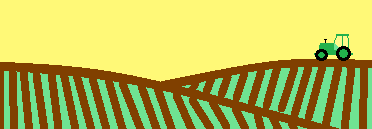Spadina Literary Review — edition 38 page 02
fiction

Middle Boy
by Charlotte Beck
The three boys sit shoulder-to-shoulder in the back seat. They try to sit still, but they are excited. They are turning twelve today. They think they are going to a lake for a party, or a picnic, or a celebration of some sort. It is the first time Mother has taken them anywhere. They didn’t know Mother could drive at all. It is always Father who drives them if there is some reason to leave the farm.
Mother wrapped her chunky arms around Father’s waist before they left. Something the boys have never seen before. Although they’ve heard noises at night. Last night even. Sounds that come from down the hall, from their parents’ bedroom. Like animals in pain, although it doesn’t sound quite like animals. Or pain. It could be Mother. The grunting, they know that is Father. His grunting is more familiar.
The Caravelle puffs blue smoke as it sputters out of the gravel lane. Bouncing over potholes. Last summer the boys spray-painted the lower panels a rusty colour, to hide the rust. The lane is lined with maple trees. Taller than their house and maybe a hundred years old. The farm has been in Father’s family at least that long; he has told them this many times. They turn left at the mailbox. They have never turned left before. At least not that they can remember. They glance at each other without quite turning their heads. Mother would look in the rear-view mirror if she could. To see what Father is doing. Whether he will come after them. She’s not sure if there ever was a rear-view mirror, but there is a spot where one should be. She doesn’t know where she is taking the boys, only that she is taking them away.
Father stands in the middle of the lane, on the gravel where grass and weeds grow in a ragged stripe towards the road. No dust rises in the Caravelle’s wake. The blinkers don’t work, so when she turns left it is his first sense that something is wrong. He waits for the brake lights to shine. For her to realize her mistake. She will have to turn around. The lake is in the other direction. Where they have picnic tables and a shelter in case it rains. He went there once when he was a boy. And it did rain. The car disappears from sight, but he still waits for it to come back.
She drives faster on the gravel road. It is straight and she is in a hurry. She drives fast, so fast that she hits a small yellow bird. She hears a muffled thunk and sees its flight pattern interrupted. She pulls over and the Caravelle sashays on the loose stones. She opens her door and rushes to where she thinks the bird is. She searches the gravel, then skids down the weedy bank. Mullein and ragweed grow tall. The milkweed is edged in brown and the flowers droop. She brushes them out of the way.
There. It is lying on its side. Its breast pulses rapidly. She doesn’t know that it is called a goldfinch. But she knows that soon its colours will fade from brilliant yellow and black to dull olive. It means fall is coming, and with it school for the boys. She can’t think about school right now. Gently, as if all the world is contained in this delicate bird, she cups it in her rough palm and puts her other hand over it like a roof. She scrambles off-balance up the bank towards the car. The faces of the three boys are framed in the back window. For a moment she thinks: What have I done? Then she feels the bird shift, the brush of a wing against her skin.